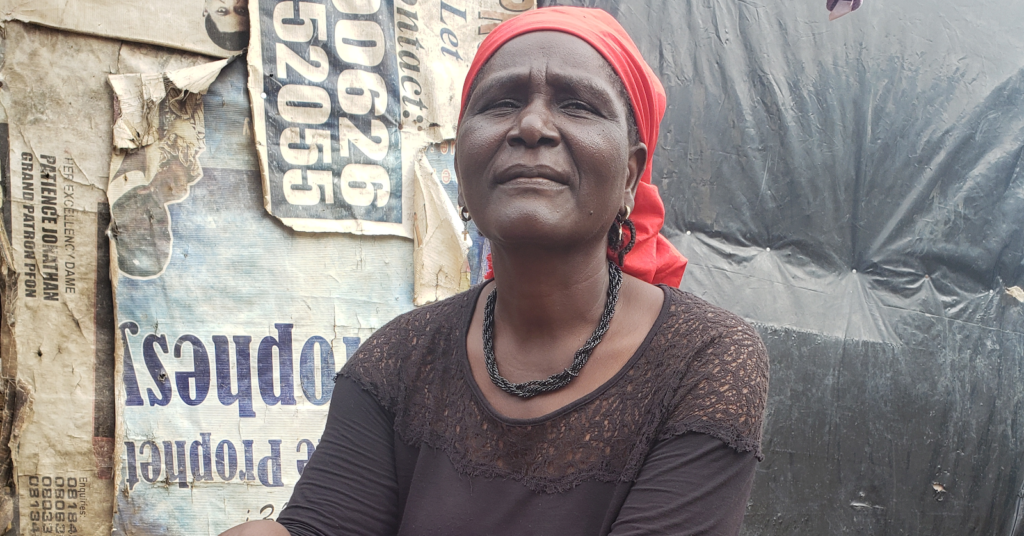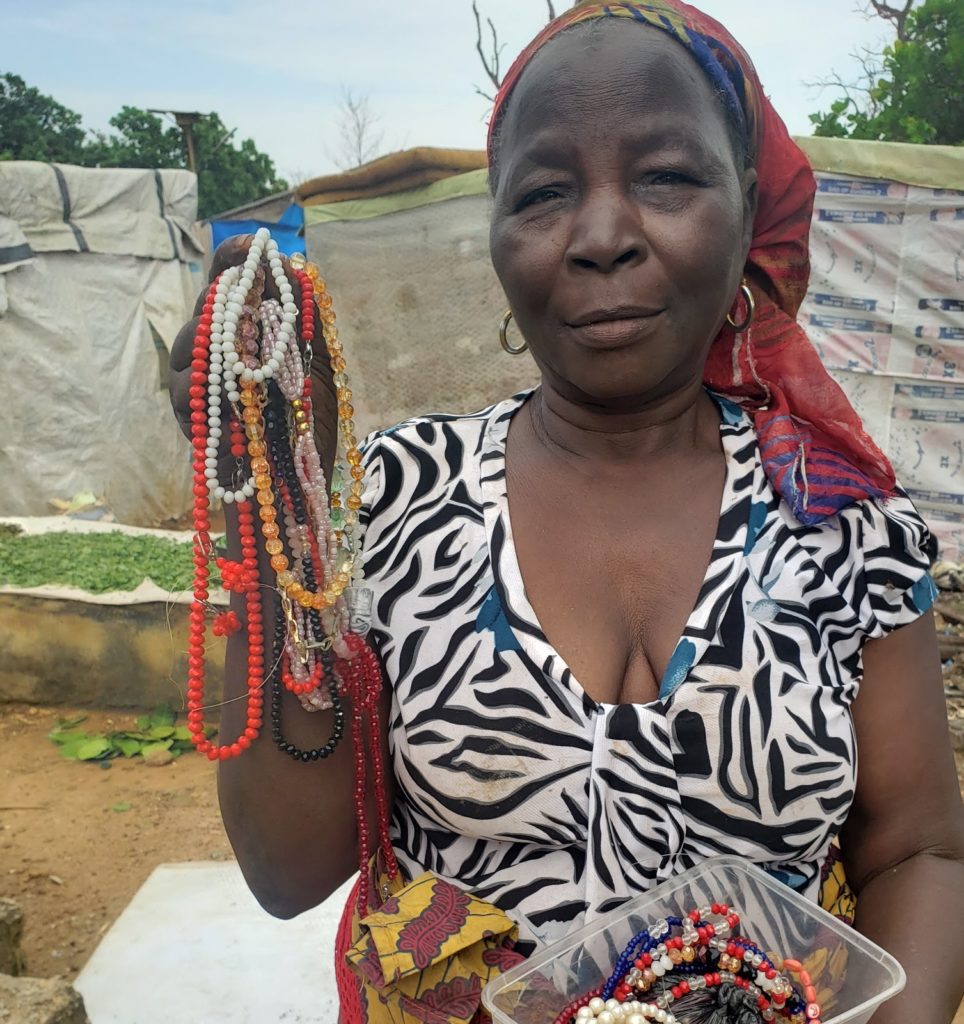Since our virtual workshop on April 21st, 2020 – considering the concerns and bottlenecks that were analyzed, we have been working on a sustainable structure that would ensure the trickling down of tech and handicraft skills at the Kuchingoro and Area1 IDP camps in Abuja.

Further engagement with forcibly displaced persons in Abuja
The lockdown that is rocking the world due to the impact of the covid-19 pandemic has made life even worse for displaced persons. Visiting the camps and seeing women who barely have any means of livelihood, with children to look after, strengthened our motivation to bring about a solution that would make life better for the residents of these camps.

Almost 3 million people have been displaced from North-east Nigeria due to the activities of the Boko-haram insurgents since 2009. The forcibly displaced persons we have been in contact with are among those who somehow found their way to Abuja. Abuja has over 40 refugee camps, with an average of more than a thousand residents in each camp.
Living standards in these camps are extremely poor, if only they had the means, they could walk freely and live in better conditions.

Boko-haram terrorists invaded their villages, abducting women, girls and children from house to house while killing men on sight. You would notice mostly women and children in the camps, the men who made it out mostly did without their families and those who did had to split at some point, for survival.
At Techfugees, we aim at empowering displaced persons with technology. Tech may not be so popular within the camps but with handicraft skills, technology could help provide a market and raise some awareness to bring about solutions for better living.

We are setting up partnerships with creative studios that are willing to offer their spaces for training, and e-commerce platforms. Management of these e-commerce platforms will be the avenue to introduce selected members of these communities to their first set of tech skills.
The money generated from e-commerce sales will go toward building shelters for their craft work, and providing training opportunities for more displaced persons.

It is true that some of them have been trained in handicrafts, but it hasn’t reflected on living standards within the camps because nobody who wants to go shopping would ever think of going to do so at the IDP camps. And the fellow camp residents would rather eat than shop anything non-essential. They are all mostly unemployed, so there is no purchasing power to support their businesses.
Though they get some materials to keep the work going after having undergone training, they are usually not able to convert the same into money, let alone scale up and become a source of inspiration to others in the camp. The entire value chain had to have been put into consideration if any form of training would make a lasting difference.
We have identified and are working with some of these businesses, through potential creative partners to produce some items for a global marketplace. Our objective is to support at least 200 people over a period of two years. Some of their creations include – hats, tie & dye fabrics, beads, clay pots, etc.

We are so excited about the prospects of how much value could be added to the living conditions of forcibly displaced persons with this project. We will be making some announcements in the coming weeks.
We are Social! Twitter | Instagram | Facebook | nigeria@techfugees.com
Article written by Brian Oyewole, co-lead TF Nigeria.